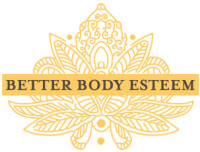
How was Thanksgiving? In this time between Thanksgiving and Christmas, why not take a breather and decide what you want the rest of the holiday season to be for you.
There can be a lot of pressure at this time of year – pressure to buy the right gifts, serve and eat the right foods according to everyone’s newest way of eating, and wear the right clothes.
This year, there may be extra challenges: difficulty finding or procuring specific gifts/goods, deciding whether to attend live or via Zoom, and doing it all with a merry disposition.
Having a zen holiday means managing your own holiday stress and coping with the extra demands on your time, energy, and finances. These can quickly get overwhelming, especially if you don’t feel you have what it takes to handle those demands.
As you know from other times of the year, stress isn’t just a response to challenging or negative events. Stress can come along with good things, too, like an event you’re looking forward to, or an exciting gift you’re planning.
You may also be picking up on the frenzy all around you during the holidays, as other people try to cope with their own holiday stressors.
Keep in mind that you can only manage your own holiday stress; you can’t control anyone else’s experience or actions. The best you can hope is that by getting into a zen state yourself, you can have a calming influence on others.
Here are the top three stressful holiday situations for people in recovery from an eating disorder, along with tips for handling them differently:
1. Unrealistic expectations: Why do we think we can get a momentous amount of things done in a small amount of time, completely forgetting about things like holiday traffic, lines, busy parking lots, and longer shipping times? Then, when we gather with people online or in person, we may have just as many false expectations about how people will get along or behave. Why can’t it be like it is in the movies? The solution here is recognizing that we can’t change what’s happening, whether it’s the traffic, other people, what’s in our bank account, or whether someone else is happy. What we can change is how much time we devote to something and how we focus our thoughts. We can manage our expectations and let go of over-the-top plans and goals. We can change how we look at things, rather than the frustrating effort to change those things themselves.
2. The food: It’s everywhere at this time of year, including some options that may not be healthy for you, and you know that eating those things – or not getting enough of the right fuel for your body – will make you feel lousy in more ways than one. What you can do is offer to bring a dish to an event so you know there will be at least one thing you can enjoy. Other people will probably appreciate your contribution as well, so don’t be surprised if you don’t have any leftovers to bring home! If all the food will be catered, call ahead and ask questions – this is becoming more and more common these days because of food allergies, so venues are usually very accommodating and helpful. No one wants you to suffer from the food you ate at their event.
3. Unwanted attention: As a kid, maybe it was getting your cheek pinched by a grandparent, or a parent always wanting to push the hair off your face. As an adult, it might be well-meaning but hurtful comments about something regarding your appearance. Remember, this is just what people do and what they see before they hear how you are or what’s inside. A holiday dinner is probably not a teachable moment for you to enlighten your family members or fight against the stigma that is still deeply rooted in our society. Instead, practice acceptance and build up your resilience. Work with a trusted friend or counselor to role-play some great responses so that you don’t feel that you’re losing yourself. Recognize that others simply do not have the training or skills to speak more appropriately and supportively. Lastly, be a role model with your own comments and compliments. Instead of focusing on someone’s appearance, mention their professional growth or community contributions. Here are some other healthy compliment ideas from Jennifer Rollin, LCSW-C.
When events, people, or situations push your buttons over the holidays, stay calm and think about ways you can cope even better next year. Soon, being zen will be your new holiday tradition.
